Hello, all - it’s time for another blog post. It seems I’ve got it in me to write a blog post perhaps once every 3-years, or so… ;)
Today I want to write about my habits.
Partly inspired by Sam Altman’s post on his own productivity, and partly because I hope some friends may offer feedback to improve the habits I have, or suggest some useful new ones.
Deliberate Practice in Daily Life
First, a bit about how these habits took form.
I’ve done some things for years — like Gettings Things Done, for example. However in the past my habits were very ad-hoc…like most people’s, I guess.
I had some good habits, but I didn’t write them down, regularly reflect on how to improve them, or deeply research new habits for areas I wanted to improve, etc…
It was all ad-hoc, until mid-last year when that changed.
This is when I did deep research (and as a result, created structured practices) for getting better sleep. They worked really, really well. Insomnia problems I’d had my whole life were completely gone, within weeks.
Because it worked so well I quickly began taking this same more thoughtful, structured, and reflective approach to other areas of my life and work.
Today I think of this way of viewing my daily habits as an implementation of Deliberate Practice in my everyday life. I’ve been living this way for maybe ~1.5-years now.
Living this way is without a doubt one of the most important, positively-impactful, high-leverage changes I’ve ever made in my life.
I hope something below may help you, too.
Table of Contents
I’ll break this up into a few sections.
First I’ll cover each habit by category with a a bit of detail. Then, I’ll put these into context of my days.
Craft
Productivity
I’ve been doing Getting Things Done (GTD) for years. It’s a personal productivity system described in a book by the same name.
From the book website’s about page:
GTD enables greater performance, capacity, and innovation. It alleviates the feeling of overwhelm—instilling focus, clarity, and confidence.
In my own experience, and the experience of many people I work with (lots of us use GTD), that statement is completely true. It’s most important impact for me has been the degree to which is frees my mind for clear thought.
I’ve recommended GTD to a lot of people. Roughly half have taken me up on it, and those that have seem to love it as much as I do. It takes time to implement but is well, well worth it. It makes people less stressed, and happier.
The above is a summary of GTD’s practices. However you really have to experience the impact these practices have yourself, to get it. So get the book and give it a try, if you’re interested.
I use an app called Omnifocus on my Mac and iPhone to implement GTD, and this is how I’ve set up my projects:
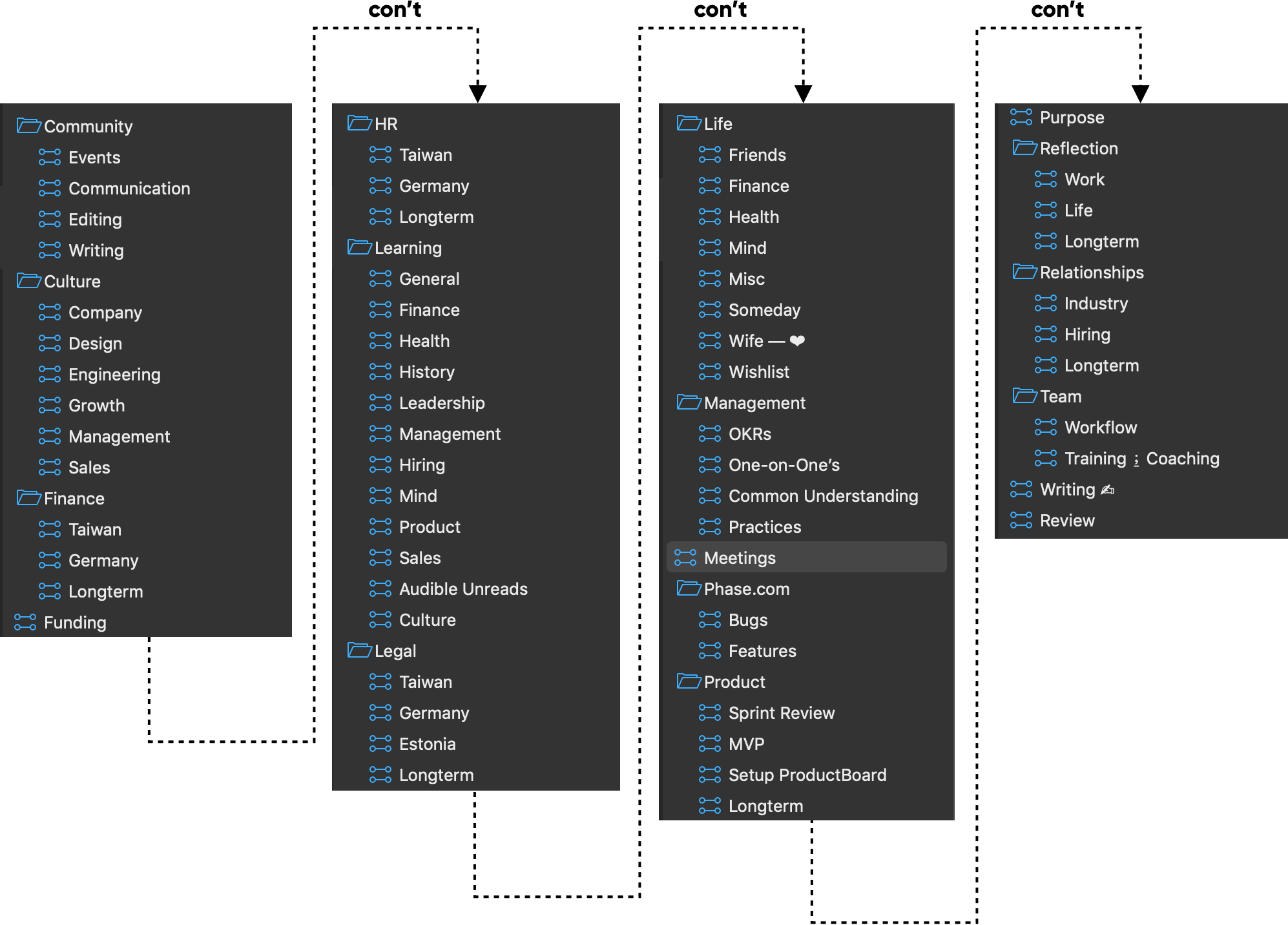
I use a number of tags as well, but I think the only ones important to talk about here are focus, >10min, and low-energy.
The focus tags represent tasks that require 3-5 hours of focused, uninterrupted work. The others, of course, are the opposite. I’ll talk about why these are important to me in the section on my routine.
I do two things in GTD not explicitly recommended by the book.
- I create many ‘reflection’ tasks. These are not really “next-actions”. They are future reminders to think (or, re-think) on a specific topic.
- I do short reviews daily (≠
weekly). It’s more manageable, since I have a lot of tasks, and it lets me prioritize tomorrow’s work, and the end of today. - I tag some large tasks as macros. This means I have not yet broken them down into next-actions. I’ll break them down later, when it’s nearing the time to actually work on them.
Moving on now from GTD, I also use an app called Toggl to track (minute-by-minute) how I use my time each workday. This started as an experiment based on Peter Drucker’s advice that: “one cannot even think of managing one’s time unless one first knows where it goes.”
The experiment was meant to last only 1-2 weeks. At the end, I’d reflect on how I’d spent my time, adjust my habits accordingly, then repeat the experiment at regular intervals of a few months.
However, I found it so useful (and so much easier than I expected) that now, I always do it. It’s not a fixed-length experiment, anymore. I expected logging my day into Toggl to be a pain, but it was not.
I also keep a note pinned to the top of my Evernote, called Thinking Out Loud. It’s a place where I can write, stream of conciousness-style, whatever I need to think-through during the day. Think and write, think and write…
At the end of each workday I empty my Thinking Out Loud note as part of inbox-zero, and so I (re)process this information at end-of-day in whatever way is required (i.e. creating GTD next-actions). Of course, I also inbox-zero my email and my Omnifocus inbox at the same time.
Lastly, I try (but sometimes fail) to manage my time according to a philosophy of Live Well, which means being thoughtful about the number of hours I work each day to maintain my productivity over time.
More than a century of studies show that long-term useful worker output is maximized near a five-day, 40-hour workweek. Productivity drops immediately upon starting overtime and continues to drop until, at approximately eight 60-hour weeks, the total work done is the same as what would have been done in eight 40-hour weeks.
The above quote is from Why Crunch Modes Doesn’t Work: Six Lessons, a study of software engineers’ productivity and total output by work-hours.
This reality has been shown to be true over and over again. We can work long hours and get more done in short bursts of 6-8 weeks at a time, but soon that increased productivity will evaporate or even reverse.
Despite this being proven true (repeatedly), some people still reject it, and we even experience guilt over it. Intuitively, it just feels wrong.
Why?
Well, from Peter Senge’s Fifth Discipline, on systems thinking:
THE DELUSION OF LEARNING FROM EXPERIENCE:
The most powerful learning comes from direct experience. Indeed, we learn eating, crawling, walking, and communicating through direct trial and error—through taking an action and seeing the consequences of that action; then taking a new and different action. But what happens when we can no longer observe the consequences of our actions? What happens if the primary consequences of our actions are in the distant future or in a distant part of the larger system within which we operate? We each have a “learning horizon,” a breadth of vision in time and space within which we assess our effectiveness. When our actions have consequences beyond our learning horizon, it becomes impossible to learn from direct experience.
So, what does this mean? Well, I’ve spent 1-hour writing this blog post so far. If I extend that to 2-hours I’ll get more done, right? Yes, I will.
That’s a simple, direct experience that tells me working a longer amount of time produces more work output. It’s where most people’s intuition comes from.
But the accumulated, eventual consequences of long work-hours summed over a long period of time is outside our learning horizon. So, we’re just not very good at intuiting it. Our spidey-sense often malfunctions when projected onto complex systems like this.
Anyway, I’m a workaholic by nature (just ask those who know me…). So it’s actually easier for me to work longer hours than it is to restrict myself. It comes naturally, while restricting myself does not.
However, alongside some other members of our team at Phase, I’ve learned to become a lot better at this. It’s more productive (i.e. it works), because it’s not about working ‘less hard’.
From Daniel Gross at his YC Startup School talk on How to Win:
I wanna be clear…I’m not proposing you don’t work hard. In order to win, you have to work hard. I’m proposing you don’t moronically work hard, and like, not sleep. Because then, you’re gonna have to work much harder, even, to catch up.
It’s about working with higher intensity, focus, and energy. That’s what restricting my work-hours each day to what’s been proven best, allows me to do. It actually helps me work harder.
For someone naturally inclined to working long hours (and enjoying it), restricting has eventually turned each day into a full-tilt, high-energy sprint of work. The sum of those daily, high-energy sprints is greater output than the previous long-hours marathons.
So today I encourage everyone to follow Hemingway’s advice, “The important thing is to have good water in the well…and it is better to take a regular amount out than to pump the well dry and wait for it to refill.”
The overwhelming body of research is, well…correct (…duh (-_-)).
One final note is that despite everything I just said, I actually do still work long-hours, sometimes. I just try to be thoughtful about it, and exercise some control over when I make that short-term tradeoff.
I can give myself a short-term boost only a few times each year, so I want to use them wisely. It’s how I try to work both hard and smart.
Learning
I ❤ learning - my role model in this is Drew Houston, of Dropbox:
…every weekend, I would take this folding chair up to the roof with all these books I got on Amazon. I would just sit there and read all of them. I would spend the whole weekend just reading, reading, reading.
There’s a copy of Poor Charlie’s Almanac beside me as I type this, so let me inject a comment from Munger here too:
In my whole life I have known no wise people (over a broad subject matter area) who didn’t read all the time — none, zero. You’d be amazed at how much Warren reads — and how much I read. My children laugh at me. They think I’m a book with a couple of legs sticking out.
I think I probably read about as much as Drew Houston says he does, which I suspect is a whole lot less than Munger. The total # of books I read isn’t that high though, because I tend to re-read (good) books more than I read new ones.
In learning I also spend time with (and learn from) peers and mentors as well, but let me focus here on my reading and study habits here. I rambled a bit in the Productivity section, so let’s just get right to it:
Daily Review : Reading
I keep a list of the best blog posts I’ve ever read in my Omnifocus, inside a note in a recurring tasks to read at the end of each workday.
When I do this task each day I’ll either take one of those saved links and re-read it, or I’ll search out something new. It depends how I feel.
If I read something new and it’s good, I’ll add it to the re-read list for next time, so this list keeps growing.
Weekly Review : Summaries
When I read non-fiction (i.e. work) books, I do it with a printed-paper physical book rather than audiobook or PDF, and I do it with a highlighter. When done, I create bullet-point summary references of the best books.
Each Friday I review one of these summaries.
“Think Time”
After my whole workday is done, I have something I just call ‘Think Time’. Often I’ll just sit in a park alone to think, undistracted. However just as often I’ll (re)read something that helps me grow in how I think.
Usually this means a book on Stoicism (❤ Stoicism…), but right now it means reading Poor Charlie’s Almanac.
Weekends
Of course, plenty of ad-hoc reading, especially on the weekends.
Fiction, Audio-Books
Every night just before (and just after) I go to bed I read fiction on audiobook, to unwind. Right now it’s The Wheel of Time.
Journaling
Journaling isn’t something I’d have expected to like. However it has become a huge part of my life.
I have a few different journaling practices. Some are focused on my work, while others just focus on being a better human.
Management Journals
I keep a management journal originally inspired by this blog post. I’ve adapted the practice the blog post describes a bit. Today I keep three of these journals in a markdown editor.
One for daily-journals, one for weekly, and one for quarterly.
Daily
The daily are much the same as described in the blog post. That is, I copy the following 3-questions into my journal at the end of each workday, to reflect on the it, the we, and the I for that day.
⇢ The It
Did you execute your work? The stuff you had on your list at the start of the day? Did you do the things that were important and not just urgent? Did I choose to work on things high leverage as a manager? Did I appropriately split my time between CEO-Work Majority and Individual-Contributor Minority? Did I lead? Comprehensively understand my team’s work in detail? Help align, energize, unblock, and motivate them?
…
⇢ The We
Did you add value to the lives of the people you interacted with? Did they walk away with more knowledge, energy, goodwill, help, a better understanding? What’s going well and what created that? What’s challenging and what created that? What strengths and contributions do I notice in others? Did you take the opportunity to coach?
…
⇢ The I
How did I manage my energy and mood? Self-care like working out, eating well, and sleeping enough. How do I feel today? What’s on my mind? What did I learn? What strengths did I notice in myself today? What did I improve in myself (mission, communication, etc)? What could I have done better today? Did I consciously manage my stress?
…
Weekly
Weekly journals are different - at the beginning of each quarter I set what are sort of like personal, management, and leadership OKRs.
In my weekly journals, which I do on Mondays to reflect on the previous week before beginning the new one, I’ve got two sections.
- In the first section I re-read the previous week’s daily management journals then summarize and reflect on that week.
- In the second section, I reflect on my personal OKRs’ progress.
Quarterly
This is the same format as the weekly journal, but applied to reviewing the previous quarter’s weekly journals.
Life Journals
I use the 5-minute Journal format and also the Morning Pages, both of which are Tim Ferris recommendations.
I use to do both every morning, but now I choose one or the other each day. I write both of these longhand, with a physical notebook.
5-Minute Journal
The 5-minute journal is actually two, short journals: one in the morning, and another in the evening. Both take only a few minutes each.
The morning journal has three sections:
- I’m Greatful for… (write 3-things…)
- What Would Make Today Great?
- Daily Affirmation; I am…
And the evening journal:
- Three Amazing Things that Happened Today…
- How Could I Have Made Today Better?
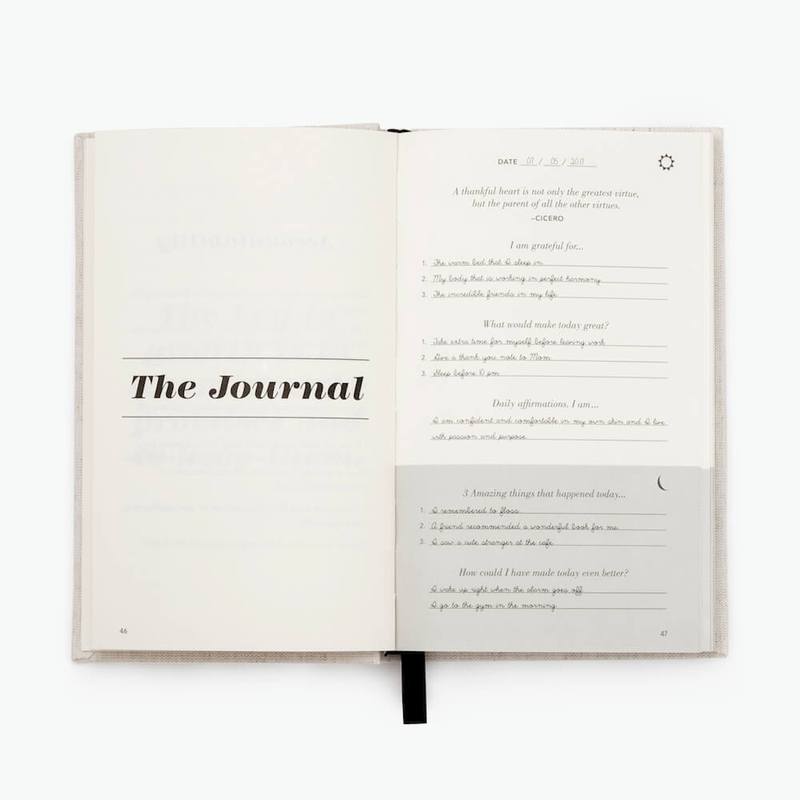
Morning Pages
Morning Pages are:
…three pages of longhand, stream of consciousness writing, ideally done first thing in the morning.
I was sceptical of Morning Pages, but have found them hugely helpful. It calms my Monkey Mind to help me focus each day.
I choose to do Morning Pages rather than the 5-Minute Journal maybe, once a week or so, based on how loud my Monkey Mind is that week.
Health
Sleep
I use to have lots of trouble with sleep. It’d take me hours to fall asleep, and once I did I’d still wake up several times a night. Now though, after years, I’ve solved it.
And it’s great.
Similar to how working long-hours is counter-productive (read: it’s dumb), allowing your sleep to suffer in quantity or quality is at least as bad, or even worse:
…knowledge workers [are] exquisitely sensitive to even minor sleep loss. Research by the US military has shown that losing just one hour of sleep per night for a week will cause a level of cognitive degradation equivalent to a .10 blood alcohol level. Worse: most people who’ve fallen into this state typically have no idea of just how impaired they are. It’s only when you look at the dramatically lower quality of their output that it shows up.
We’re just as bad at intuiting the damage poor sleep has on our productivity (let alone, health) as we are on extended periods of long work-hours.
What’s worst is just how unaware we are how much our sleep quality suffers due to normal, modern living with things like light pollution, for example.
It’s something worth investing into, with time and learning. I have solved this for myself, and my life’s much better as a result.
If you want to learn more someone like Shawn Stevenson gives good intros on YouTube, and has a good book where the majority (though not all) of what he recommends has good backing.
I hope some of what’s below might help you too.
Device Curfew
Your devices’ (phone, laptop, etc.) blue lights are bad for your sleep, and probably bad for your health generally.
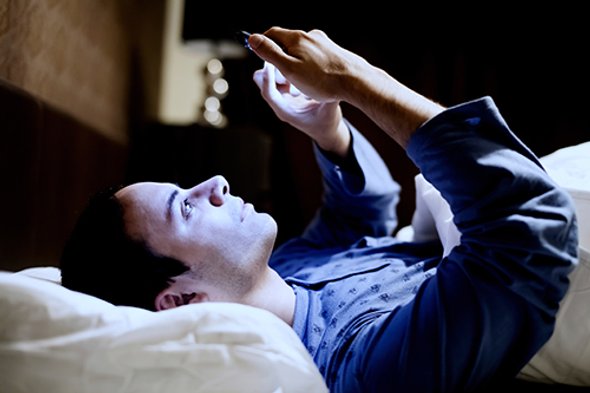
The best thing I do is my device curfew where I just stop using my devices around 8:00pm. I do some other things too, though.
I use Night Shift on my Mac and Phone to dim blue light in the evenings. It’s not powerful enough, though. So I use this superdim hack too, on my iPhone.
I’ve got a pair of bluelight blocking glasses which I use while on my computer during the day.
What I really want (but don’t have yet) are low bluelight lightbulbs for my bedroom. They should allow me to read before bed, with the light turned on. Right now I’m squinting at my books in a dark room.
Magnesium Oil
Now, this is awesome.
Magnesium Oil is something you can spray anywhere you feel sore - or just, wherever - right before bed. It relaxes you and generally helps sleep::
Magnesium regulates both neurotransmitters and melatonin. Neurotransmitters relay messages between your brain and your nervous system, and your melatonin levels control your sleep-wake cycles. Researchers have found that melatonin and magnesium levels correlate in the body. Those with depleted levels experience poorer sleep, and vice versa. Based on these findings, researchers concluded that, like melatonin, magnesium is tied to your circadian rhythms.
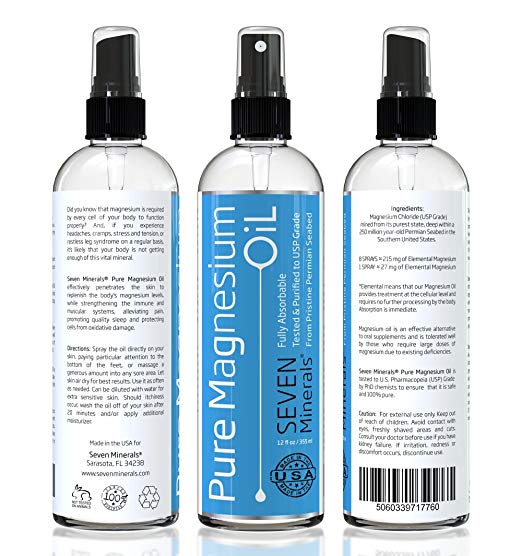
It really helps me a lot. I’ve given it to a few people and they’ve told me it really helps them, too. One $20 bottle will probably last you 6-12 months.
That’s maybe 5¢ per night for better sleep? I definitely think it’s worth it.
Learning to Sleep on my Back
I’ve learned to sleep on my back with an ergonomic pillow that has been a big help for my neck pain.
LED Light
This was something recommended by Sam Altman in his post on productivity . Specifically he said:
I use a full spectrum LED light most mornings for about 10-15 minutes while I catch up on email. It’s great—if you try nothing else in here, this is the thing I’d try. It’s a ridiculous gain for me.
So I got one too and yup, it’s great. I turn it on each morning during my journaling right after waking up.
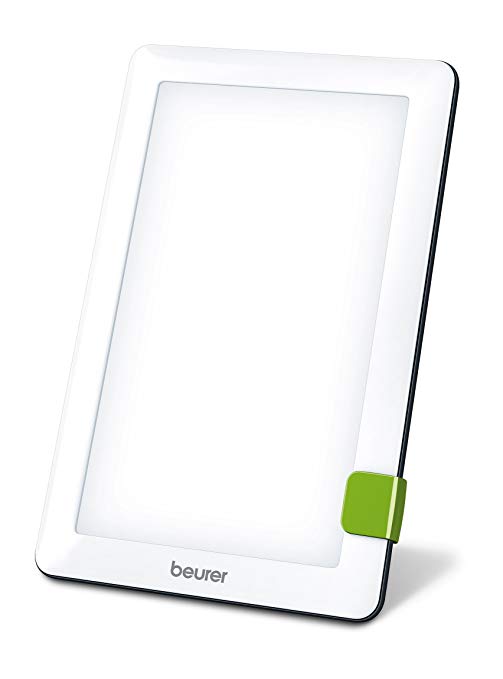
It energizes me right at the beginning of the day, then in turn helps set consistent circadian rythms for that night’s sleep.
I’m using this one and like it a lot.
ChiliPad
I use something called a ChiliPad to cool my bed. My wife thinks it’s dumb, but I really like it. I do wish it had more powerful cooling, though (Taiwan is hot).
Apple Cider Vinegar, Honey
I’m not sure if this works or not, but I enjoy the ritual of making a cup before bed. Grab a cup of water, add 2-3 tablespoons apple cider vinegar, then mix with 1 tablespoon raw honey.
Many swear by it. Google it, you’ll see.
Audiobooks, Fiction @ Night
I read fiction at night via audiobook, to relax. I listen to these audiobooks while falling asleep and use something called Cozyphones to comfortably wear headphones to bed.
What’s very nice is that the Cozyphones for exercise are cool enough to wear to bed in a hot country like Taiwan.
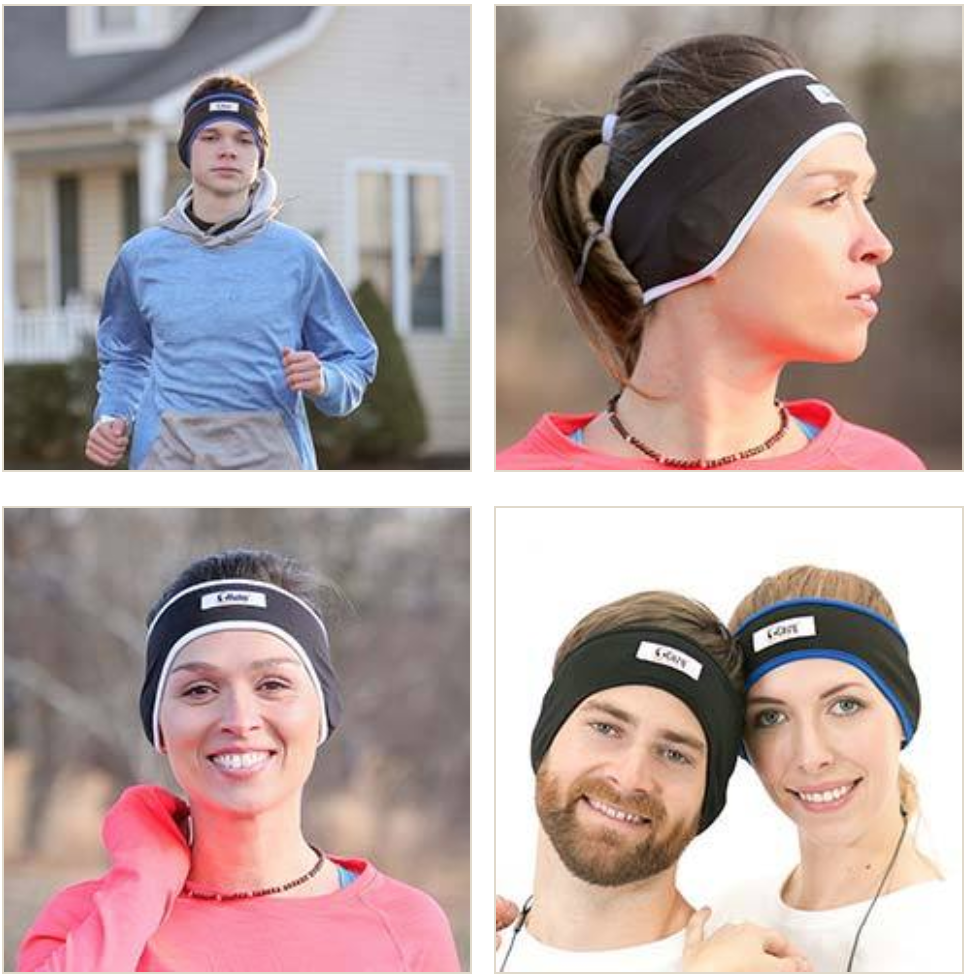
Food ± Supplements
Unhealthy eating has for most of my life, been my worst habit. So sometime last year I decided to finally fix this. I spent some weekends learning what I needed to know, then turned that knowledge into a plan for change.
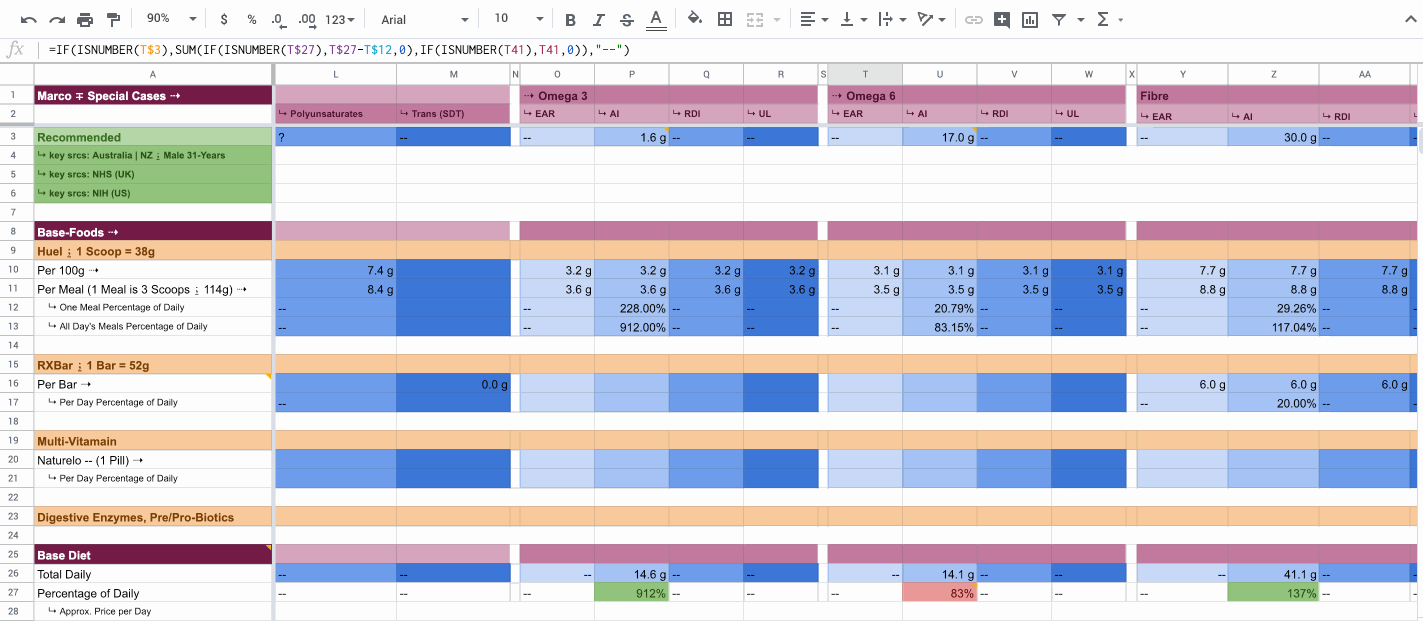
Below are the habits that have resulted from these changes.
Intermittent Fasting
I do intermittent fasting twice a week, for 24hrs on Tuesdays ⌿ Thursdays.
What does that mean? Well, it just means I eat my last meal on Monday evening, then don’t eat again until Tuesday evening. Same on Thursday.
I won’t try to get into the science of intermittent fasting here because it’s not fresh enough in my mind anymore. If you want to check it out, see Jason Fung. He’s a Canadian doctor who uses intermittent fasting to help reverse diabetes.
I’d really like to try longer fasts a la Evernote’s Phil Libin-style, but I haven’t yet prioritized the time to try it.
Huel
Most of my meals today are in the form of the unfortunately named, but otherwise awesome, Huel powdered food. There’s a signal vs. noise problem with this type of powered food…so people sometimes mistunderstand it.
Things like Soylent, though well-known, are actually not that great. The best summaries I’ve found were this one and this one. I chose Huel because it was healthy, but cheap:
Huel is transparent about the fact that they use conventionally grown, as opposed to organic, ingredients. The primary reason why the company decided to go the conventional route is cost. Huel’s goal is to deliver a nutritious meal at a low price. By using only organic ingredients, Huel would have to charge more for their product. I appreciate that not everyone can afford pasture-raised meats and organic produce and, thus, consider Huel an excellent alternative. It’s also worth noting that Huel is non-GMO, even if they don’t advertise it as such.
When I first began eating Huel, for a few days I felt hungry. The amount of food I was eating was small, so my body was all “what’s up?”
But a few days in my body was all “oh, I get it…you’re just not eating crap anymore”. The amount of food now felt filling, and I started craving Huel, and sort of ‘anti-craving’ what I’d been eating before.
Huel’s great for me, and my body knows it.
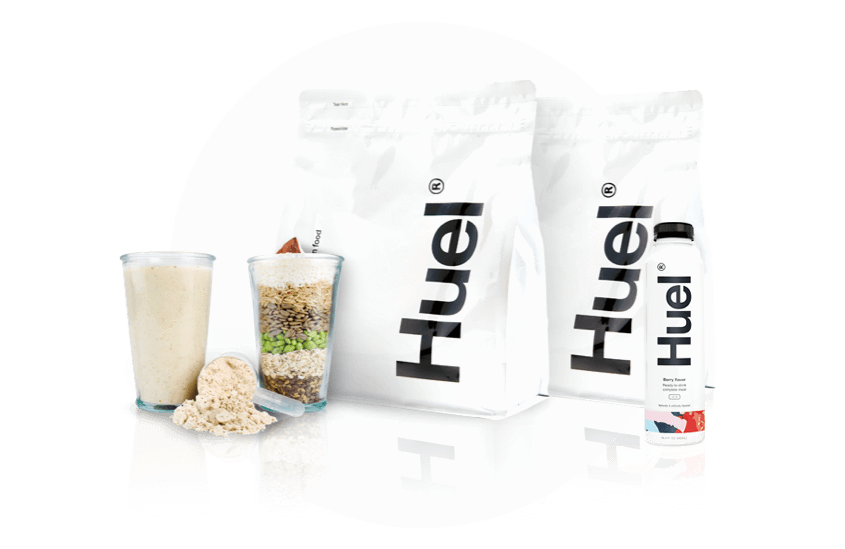
Coffee
I love coffee, but these days I try to stop drinking it around 2:00pm at the latest. It’s really important for sleep.
Nootrostax Smart
Nootrostax Smart is a ‘smart pill’ - it increases memory, focus, energy, etc. I really love it, though I’m still on a supply of v2, so can’t speak to v3.
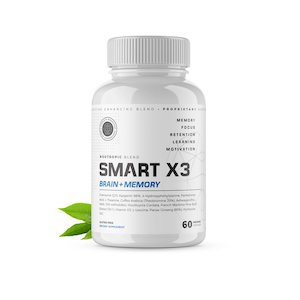
Creatine
I take creatine for better cognitive performance, and improving my memory. The evidence says that long-term use (i.e. years) is just fine.
I take this just before bed, since I’m taking it mostly to improve short-term memory (which your brain stores at night). I’m not sure if this timing actually helps, though.
Host Defense Immune Support
I use to get sick all the time, especially when I travelled for work.
So when I was reading Tribe of Mentors: Most Impactful Purchases of $100 or Less I got excited when I saw Host Defense recommended by Samin Nosrat:
…Host Defense MyCommunity mushroom complex is the most incredible immunity supplement I have ever taken (and I have taken a lot of them!). No matter how much I travel, how many hands I shake, or how exhausted I am, I don’t get sick as long as I take the supplement diligently.
This bunch of mushrooms turns you into Bruce Wilis in Unbreakable. I just don’t get sick anymore, whereas I use to be sick 1-2 times/month.
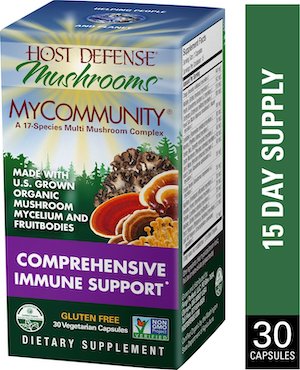
Naturelo
It’s unclear if multivitamins really help, but I fall into the “why not” camp with this. I’ve got a subscription for Naturelo Whole Food Multivitamin for Men.
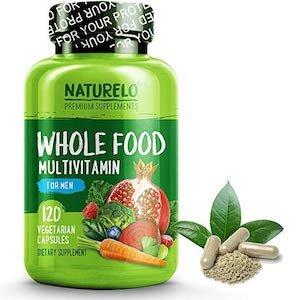
Mental Health
While I think journaling and Stoicism are actually the biggest positive contributions to my mental health, meditation is important too.
I use an app called Headspace for guided meditation most mornings, which I do after journaling. I sometimes use it during the day too if I need to do something like increase my focus, or de-stress for a quick 3min.
Exercise
Consistent exercise is a problem for me. I enjoy going to the gym, but I travel so often for work that any gym schedule is quickly disrupted.
So for the past few months I’ve been trying a new approach: zero-equipment HIIT workouts, that I can do anywhere. Right now this means the 7-minute workout in the mornings with the accompanying app, though I may try others soon.
I have yet to see if this’ll hold up when I travel.
Gear
Work Station
Work station is a fancy way to say, the stuff I carry in my backpack to use my computer. I use a Roost Stand with external keyboard and mouse to bring my laptop up to eye level without craning my neck.
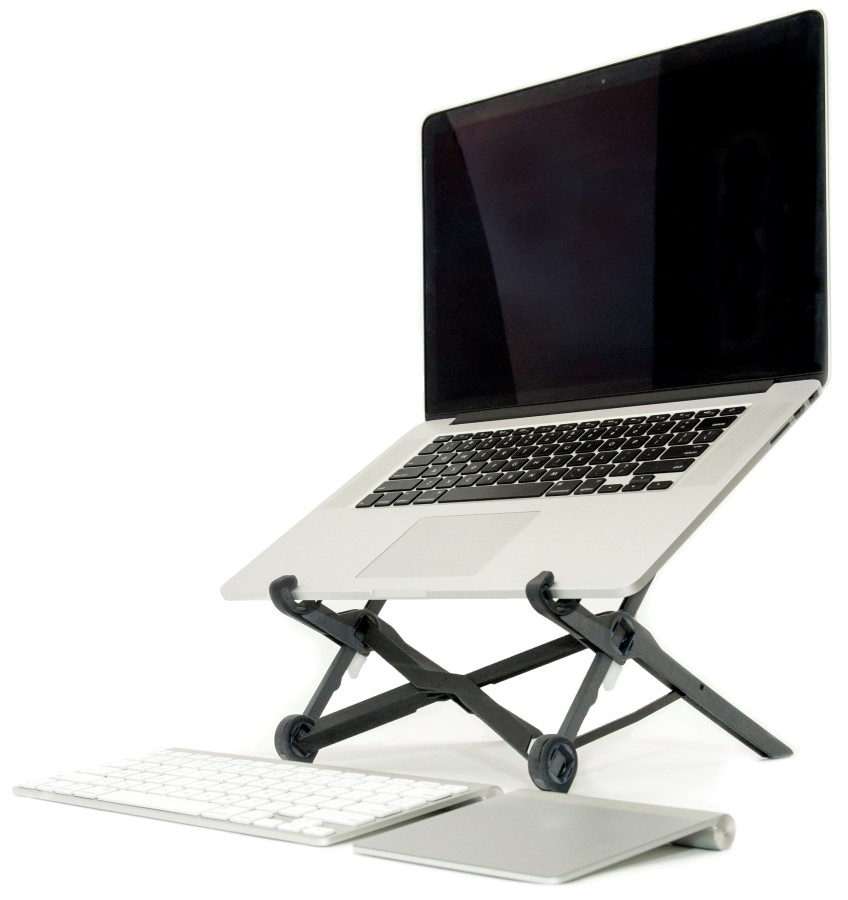
It’s great. I work on my computer a lot (obviously), and bringing it up to eye level has helped ease some chronic neck pain.
I’ve got reading and writing stands on my desk at home for the same reason. Overcome the nerd neck 🚀.
Clothes
Except for my sweatpants (which I soon hope to replace) my clothes don’t look much different from anyone else’s, but they are.
As we grow up we switch from comfortable to uncomfortable clothes, and from functional to un-functional clothes. I think it’s really, really dumb.
So I try to walk the line wearing clothes that look acceptably-adult, while secretly being more comfortable and functional than the rest of you fools (kidding…).
Shoes
Taiwan is hot, and so are a lot of the countries I travel to. Until recently though, the only shoes I could find to deal with that were sneakers, which I didn’t want to wear in some work contexts.
But neither did I want to travel with two pairs of shoes, constantly swapping sneakers for work shoes and vice versa.
I finally found the answer in Cole Haan stitchlite. These are perforated, knit-shoes that I actually find even more cooling than sneakers, and they look good too.

I’ve also got a pair of Xpand no-tie elastic laces in my shoes, because why would I want to sit down every time I want to put my shoes on?
They’re no-tie, elastic laces for adults.
Merino Wool
I’ve been slowly migrating all my clothing to Merino Wool. It’s basically super-fabric, from a New Zealand super-sheep.
It keeps you warm when it’s cold. It keeps you cool when it’s hot. It’s lightweight, strong, and it’s comfortable. It’s anti-bacterial, so when you’re traveling you don’t have to worry as much about not being able to wash - it won’t stink.
Pants
Something I haven’t yet done but really want to is: great pants. Pants that look like jeans, but are actually cool, lightweight, sweatpants-y pants (i.e. comfortable).
It’s the only remaining the part of my clothing where I’m full-on little kid (i.e. comfort, function ≠ style. Now, I’m usually just in standard sweatpants.
I have my plan, though. I just have to choose which to buy. There are some like Public Rec, Western Rise, Oliver’s, Thunderbolt, and plenty of others.
Once I’ve got the money, I’ll get a few pairs.
Routine
Ok - now, let’s put this all into the context of a day.
My miBand starts a vibrating alarm at 6:15am each morning, but I’m usually already awake. First thing, I grab my phone for 7-Minute Exercise. Once done I sit down at my desk for ~10min to meditate with Headspace.
Then I switch on my LED and start my 5-Minute or Morning Pages journal. Finished my journals, then grab my Naturelo, Nootrostax, and Host Defense then mix a bottle of Huel to drink during my walk to a cafe.

I’ll arrive at a cafe around 7:30am for what I call my Focus Time. This is where I focus on one block of work which needs my undivided attention for ~4 hours, in keeping with Peter Drucker’s advice that:
The effective executive therefore knows that he has to consoidate his discretionary time. He knows that he needs large chunks of time and that small driblets are no time at all. Even one quarter of the working day, if consolidated in large time units, is usually enough to get the important things done. But even three quarters of the working day are useless if they are only available as fifteen minutes here or half an hour there.
Tasks for this Focus Time are tagged focus in my GTD, which I prioritized for today’s work yesterday, so when I sit down with my coffee I can get right to work.
I’ll sometimes use whitenoise or a single-song on repeat for hours during this Focus Time — blocking my Focus Time each morning like this is one of the most important habits I have as a CEO.
A few hours in I have standup calls on Zoom with my team, but these only last a few minutes, then I’m back to Focus Time.
Somewhere around noon or 1pm, it’s time to switch. I mix another bottle of Huel to drink while walking to my next work-spot, usually our office. The rest of my day is then spent quickly context-switching between small tasks, or in meetings.
Oh, and I’m tracking what I do on Toggl, since arriving at the morning cafe. I’m also setting up that backpack workstation, everywhere I go.
By late afternoon I’ve (hopefully) accomplished everything I prioritized in GTD for today, and it’s time for my GTD Review (which I do daily).
I inbox-zero my Omnifocus inbox, email inbox, and my Evernote ‘Thinking Out Loud’ note which by now has filled up with the day’s stream-of-conciousness thoughts. Then, I read (or re-read) something useful for my learning.
I breifly review and edit every task in my Omnifocus, and double-check that I’ve correctly logged my Toggl today which lets me reflect on the day’s work accomplished.
Finally, I prioritize my work in GTD for the following day.
If it’s Friday I’ll do a more thorough review, which includes things like breaking down macro-tagged tasks in GTD to next-actions, if I’ll try to complete those macro tasks in the following week.
When that’s all done I grab my markdown editor to write a Management Journal for the day where I reflect on the We, the It, and the I.
With that all done, now my work day’s over.
So it’s time for Think Time, which can mean a long walk, or sitting alone in a park, to just think or to (re)listen to a Stoic audiobook.
There’s then a variable few evening-hours here where I’ll usually either do something with my wife, or see some of my friends.

When I’m home for the night I’ll watch something on my computer if it’s early, then switch to reading as it gets later.
I’ll take my creatine, mix my apple cider vinegar and honey, have a shower, get my magnesium oil, then get to bed with cozyphones, a sleep mask, and a good audiobook.
Done 👋
And, that’s all ;)
It took me some time to develop these habits, however I’ve been adhering to most of them for quite awhile now, and my life’s much the better for it.
I hope a thing or two above may be useful for you as well, and would love to know how you think I could make my own habits better.